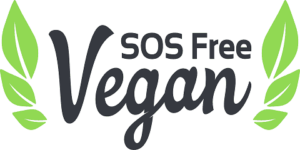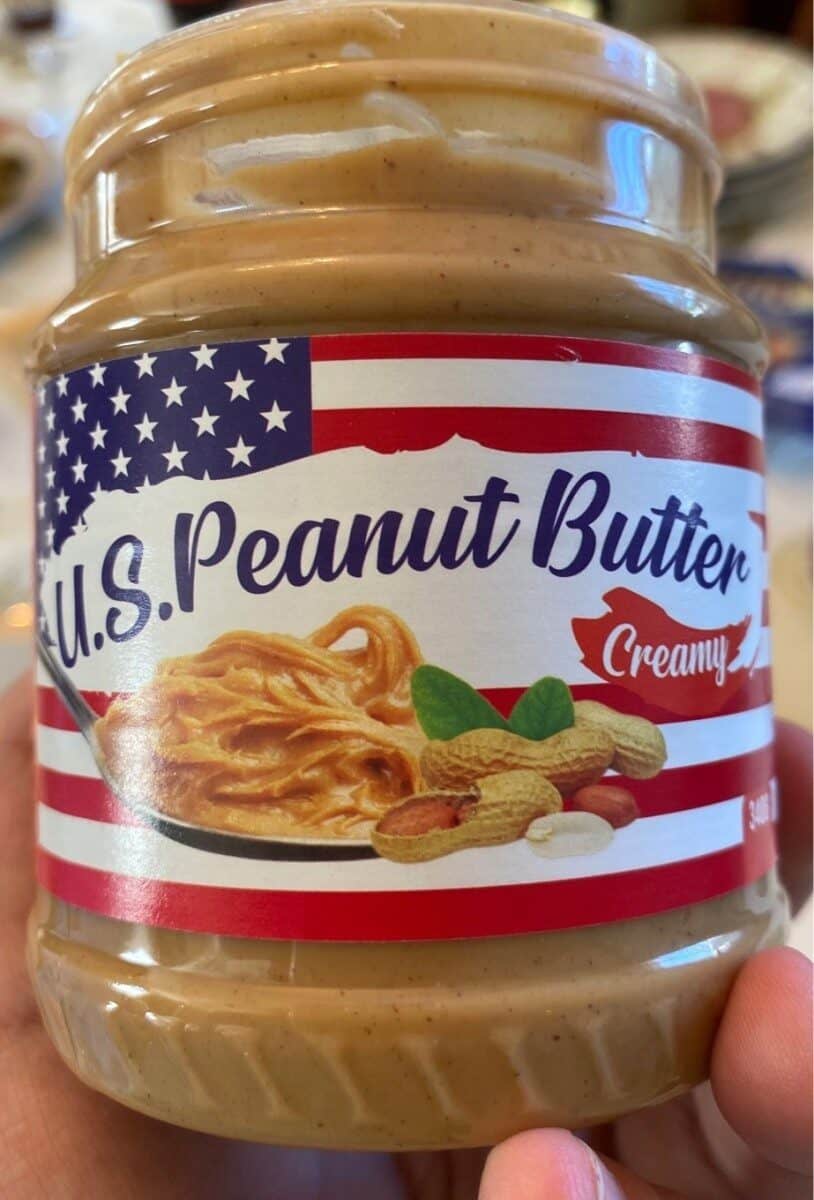Last Updated on April 23, 2023 by admin
The nuttiness and richness of peanut butter make it great to eat on a sandwich, in a dessert, and sometimes straight out of the jar. Avid peanut butter lovers may wonder if the vegan diet precludes the consumption of peanut butter. Is this tasty nut butter still allowed?
Vegans do indeed eat peanut butter, which is comprised of some sugar, salt, and peanuts. These are all vegan ingredients. Do make sure your peanut butter doesn’t have honey for flavoring, as honey is an animal byproduct that’s excluded from the vegan diet.
In this post, we’ll talk more about the ingredients in peanut butter, how healthy it is, and whether vegans eat it. We’ll even discuss if vegans regularly enjoy other nut butter, so make sure you keep reading!
What Is Peanut Butter Made of?
Peanut butter comes in two varieties: nutty/chunky or smooth, but its ingredients shouldn’t change based on the consistency. To produce peanut butter, food manufacturers will take ground peanuts and heat them at temperatures up to 800 degrees Fahrenheit. Next, they’re dry-roasted for around an hour at lower temps of 320 degrees.
Once the nuts cool, they’re blanched, grounded, and mixed with other ingredients. These ingredients may include sugar or another sweetener as well as salt and an emulsifier such as di- or monoglyceride fatty acids. The purpose of the emulsifier is to make the peanut butter spread easily and also to increase its stability and shelf life.
The Nutritional Value of Peanut Butter
Is peanut butter a part of a healthy diet? Here are the nutrition facts for 100 grams or 3.5 ounces of non-salted, smooth peanut butter:
- 588 calories
- 20 grams of carbohydrates
- 8 grams of starch
- 2 grams of sugar
- 6 grams of dietary fiber
- 50 grams of fat
- 25 grams of protein
- 11 milligrams of thiamine or vitamin B1 (10 percent of your daily recommended value)
- 11 milligrams of riboflavin or vitamin B2 (9 percent of your daily recommended value)
- 2 milligrams of niacin or vitamin B3 (88 percent of your daily recommended value)
- 1 milligrams of pantothenic acid or vitamin B5 (22 percent of your daily recommended value)
- 55 milligrams of vitamin B6 (42 percent of your daily recommended value)
- 9 milligrams of vitamin E (39 percent of your daily recommended value)
- 54 milligrams of calcium (5 percent of your daily recommended value)
- 2 milligrams of iron (17 percent of your daily recommended value)
- 179 milligrams of magnesium (50 percent of your daily recommended value)
- 5 milligrams of manganese (71 percent of your daily recommended value)
- 335 milligrams of phosphorus (48 percent of your daily recommended value)
- 649 milligrams of potassium (14 percent of your daily recommended value)
- 7 milligrams of zinc (28 percent of your daily recommended value)
Although peanut butter is high in calories, carbs, and sugar, it’s a great source of many vitamins, minerals, and nutrients. That’s especially true of vitamin B3, vitamin B6, magnesium, manganese, and phosphorus.
Can Vegans Eat Peanut Butter?
That makes us glad to share some good news with vegans: your diet does indeed allow you to continue enjoying peanut butter. Whether you eat some peanut butter with breakfast–such as a dollop in your morning oatmeal–you chew into a classic peanut butter and jelly sandwich for lunch, or you enjoy some jarred peanut butter as a snack, eating this nut butter is perfectly vegan-friendly.
More peanut butter manufacturers have begun selling versions of peanut butter that include honey. These often say as much right on the front of the label. Still, when buying any peanut butter product at your favorite grocery store, it doesn’t hurt to investigate the nutritional label before adding the product to your cart. This way, you can be completely confident that you’re not ingesting honey, which is disallowed on the vegan diet.
Can Vegans Eat Other Nut Butters?
Peanut butter may be the most beloved nut butter, but it’s far from the only one out there. Here are a few other nut butters you might wish to incorporate into your diet:
- Pecan butter: Like peanut butter, pecan butter is calorie-heavy. You’re also consuming beta-sitosterol, a type of plant steroid that can treat conditions like enlarged prostate.
- Macadamia nut butter: The fats in macadamia butter are good for your heart, and this butter is high in magnesium like peanut butter.
- Walnut butter: With omega-3 fatty acids like alpha-linoleic acid as well as monounsaturated fats, walnut butter is a healthy choice for your diet.
- Almond butter: Growing more and more in popularity, almond butter contains vitamin E for less inflammation as well as fiber and calcium. You won’t find more of the latter two nutrients than in almond butter.
- Hazelnut butter: With potassium, phosphorus, magnesium, and iron, you might not miss peanut butter once you start eating hazelnut butter.
- Pistachio butter: Yes, pistachio butter is indeed a thing, and it’s ideal for raising your HDL cholesterol while lowering LDL cholesterol. This butter also contains vitamin B6 in high amounts.
- Cashew butter: For plenty of zinc and protein, cashew butter will satisfy. More sweet than salty in taste, cashew butter is very smooth.
As you can with peanut butter, you should be able to shop for vegan-friendly versions of all the above nut butters. Without honey and other inherently non-vegan ingredients to worry about, you’re free to explore the whole wide spectrum of nut butters until you discover your favorite!
Conclusion
Peanut butter is a classic treat that’s great for breakfast, lunch, and dessert (maybe dinner too if you’re especially creative in the kitchen!). Even better is that if your peanut butter uses simple ingredients and no honey, this nut butter is safe to eat. That’s the same story with other nut butters as well.
Although peanut butter has a lot of carbs, sugar, and calories, it’s rich in nutrients and minerals, not to mention it has filling fiber and protein that you need for a well-rounded diet. A spoonful or several once or a day should enhance rather than hurt your health.
Recent Posts
You’ve read this blog and it’s certainly piqued your curiosity about what it means to be an SOS-free vegan. You’ve learned about this branch of veganism from our introductory post and maybe...
Vegans Desserts! Few things taste better than a refreshing ice cream cone on a hot summer’s day. Now that you’ve given up sugar and oil (not to mention salt) and gone vegan though, you may feel...

